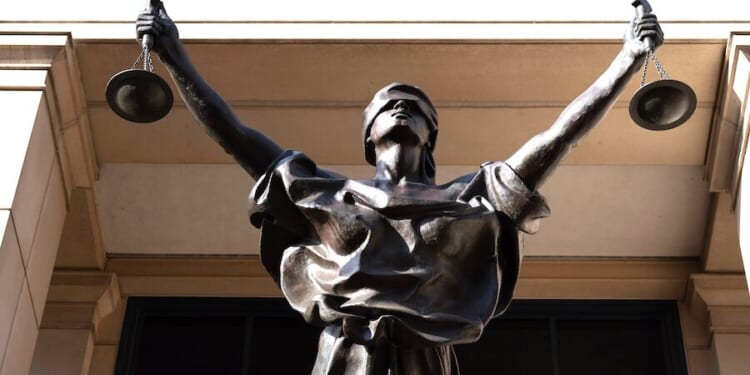In today’s political discourse, diametrically opposite viewpoints, or asserted “facts,” seem ingrained. The Sept. 25 indictment of former FBI Director James Comey by the U.S. Department of Justice underscores this rift.
Among lawmakers of each party, for example, views are reliably partisan. Yet in the wider arena of public comment, conservative and liberal observers are more in agreement than in argument: They see this action as a proving ground for the country’s system of democratic rule of law and checks on power, while cautioning that “lawfare” (using courts to intimidate or hinder an opponent) does not honor justice.
Mr. Comey faces two charges – perjury and obstruction of justice. The administration’s case is seen as generally weak by legal experts from across the spectrum. President Donald Trump publicly demanded that Mr. Comey be prosecuted, even after previous investigations found insufficient grounds to do so. The prosecutor is inexperienced. And technology glitches during an online 2020 Senate hearing muddied Mr. Comey’s responses, which are germane to the charges.
A judge may dismiss the case on evidentiary grounds or as a “selective” prosecution, challenging the president’s attempts for legal retribution on opponents. Or the case may go to trial. The varied routes forward highlight the built-in guardrails in the American judicial system – which have acted, and continue to act, against abuses of the system. Conservative voices have pointed to previous cases against Mr. Trump as unwarranted. Mr. Trump himself – as a businessman, president, and ex-president – has benefited from and been bound by those same safeguards of law. He has had lawsuits dismissed, won some, and lost others.
Both the president and Mr. Comey are now relying on the judicial system. Even this modicum of faith hints at the deeper roots of society’s trust in the U.S. tenet that “all men are created equal” – and presumed innocent until proven otherwise. Such principles informing Western law grew from a Judeo-Christian understanding of God that upholds the spiritual innocence of each person. Law promotes “its own sanctity,” said the late legal historian and philosopher Harold J. Berman. It appeals to citizens’ “faith in a truth, a justice, that transcends social utility.”
“Law serves love … by creating a soil in which it may grow,” Professor Berman said in a 1971 lecture. The fact that the judge “listens to both sides of a case, that he opens his mind and heart to both plaintiff and defendant, is designed to exclude prejudice or hatred as a factor in deciding. This is what love demands.” And, one might add, this is what enables the law to function at its best.












